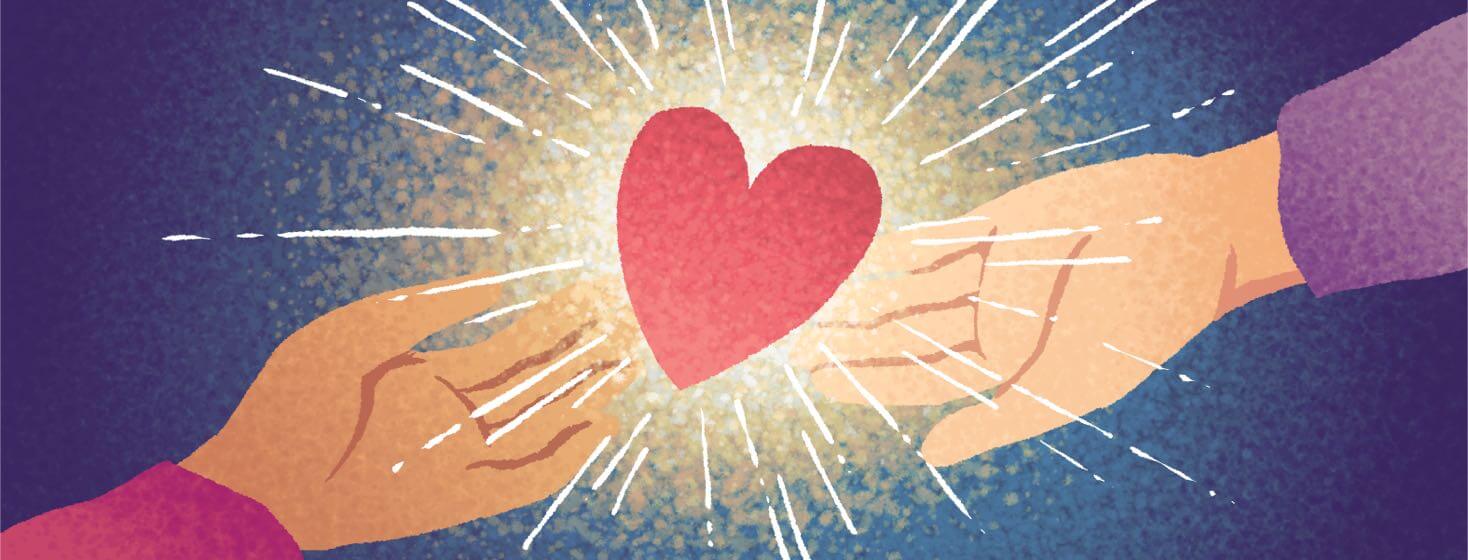Understanding Symptoms: The Five A's
If you're new to the role of caring for someone with a schizophrenia disorder, you might feel overwhelmed by all the new words you’re hearing. Don't worry – they'll start to make sense as you gain experience with the people and systems involved in your loved one's care.
Meanwhile, maybe I can help clear up the confusion by explaining the "Five As" of symptoms: affect, avolition, anhedonia, asociality, and alogia.
Understanding your loved one's schizophrenia symptoms
No 2 people with a schizophrenia disorder have the same symptoms, experiences, and behaviors. Your loved one might experience all of the "Five A's" at one time or another, or none of them.
Either way, learning these terms might help you feel more confident when talking with their team or when meeting other people with schizophrenia.
Separating the disorder from the person
I sometimes felt like my daughter Sally had gone through a personality change during her onset, which often scared and confused me more than the delusions and other bewildering symptoms associated with her disorder.
Learning what was behind Sally's behavior helped. The more I know, the more I can separate the disorder from the person I love so I can give her the best support possible.
So let's dive in! The "Five A's" all describe external, or visible, symptoms that people with schizophrenia may experience.
"Five A's" of schizophrenia symptoms
1. Affect
Affect simply means the way a person shows their emotions. Many of us guess what other people are feeling by their facial expressions, body language, and tone of voice, but this doesn't always work with people who have schizophrenia.
A symptom called "blunted" or "flat" affect may prevent emotions from showing on their face in the usual way. Sometimes you might not be able to tell how intensely they are feeling an emotion, or even be confused by what seems to be an inappropriate emotion or reaction, like frowning, smiling or laughing when the situation doesn't seem to call for it.
2. Avolition
Avolition is about motivation – specifically, your loved one having less of it than you're used to. Some people with schizophrenia seem to lose the desire or ability to "get anything done." They may not be interested work or school, or feel like doing things they used to enjoy. They may not want to interact socially even with those they love.
3. Anhedonia
On the other hand, anhedonia describes the loss pleasure and enjoyment from things your loved one used to like to do. They may become uninterested in hobbies, family outings, favorite television shows, or special foods. Nothing seems to "cheer them up."
4. Asociality
If your loved one seems withdrawn, turning down opportunities to visit with family and friends or not returning calls and texts, they may be experiencing asociality.
It can be hard not to take it personally when your loved one shows little interest in you or doesn't respond to your attempts at conversation, but it's important to remember that this symptom does not reflect their true feelings. For instance, once Sally had experienced some recovery she was able to tell me how much she appreciated me during her onset even though she couldn't express it at the time.
5. Alogia
Alogia simply means not talking much. You may also hear this symptom referred to as "poverty of speech." It can show up as clipped, repetitive responses (which can remind us of annoying teenage behavior) or as difficulty expressing thoughts and ideas. This might frustrate our loved one so much that they give up trying, which can in turn make us feel like they are tuning us out.
This or That
Do you consider yourself an advocate?
Not taking my daughter's symptoms personally
You probably noticed a lot of overlap in these symptoms. For instance, if someone isn’t motivated to leave the house, they probably aren't interested in visiting friends, either.
In my case, it sometimes felt as though Sally didn't care about my feelings and thoughts, which contributed to the loneliness of my caregiving role. I was lucky to have the support and educational resources of NAMI, and in time I learned how to meet my own social needs in other ways even when I couldn't leave the house.
Remember to care for yourself, too
I know you’re a strong and loving person – otherwise you wouldn't be a caregiver! Learning as much as we can about schizophrenia not only helps us understand what our loved ones are going through but reminds us to care for ourselves in the face of these challenging symptoms.
